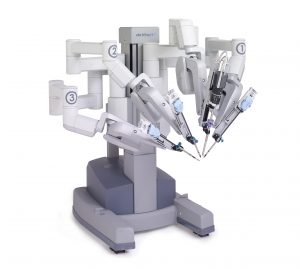Winter weather doesn’t mean the end of your outdoor exercise routine. If you plan to continue to run or bike after the mercury drops, consider following these tips so you can stay safe and warm while exercising in the cold.
Know the weather conditions before heading outdoors – In addition to the temperature, those heading outside to exercise need to understand how wind and precipitation can affect your health. These factors, combined with the length of time spent outdoors need to be taken into consideration before beginning an outdoor exercise regime.
Know the signs of frostbite and hypothermia –Frostbite is most common on exposed skin, such as your cheeks, nose and ears. It can also occur on hands and feet. Early warning signs include numbness, loss of feeling or a stinging sensation.
Hypothermia is abnormally low body temperature. When exposed to cold temperatures, your body begins to lose heat faster than it can be produced. Hypothermia signs and symptoms include intense shivering, slurred speech, loss of coordination and fatigue.
Get out of the cold and seek emergency help right away if you experience symptoms of frostbite or hypothermia.
Dress in layers – Dressing too warmly is a big mistake when exercising in cold weather. Exercise generates a considerable amount of heat — enough to make you feel like it’s much warmer than it really is. The best option is to dress in layers that can be removed as soon as you start to sweat and then put layers back on as needed.
Protect your head, hands, feet and ears – When it’s cold, blood flow is concentrated in your body’s core, leaving your head, hands and feet vulnerable. Ways to protect these parts of your body include wearing a thin pair of glove liners under a pair of heavier gloves, purchasing exercise shoes one size larger to allow for thick thermal socks or an extra pair of regular socks. And don’t forget a hat to protect your head or headband to protect your ears.
Use proper safety gear – If it’s dark when you exercise outside, wear reflective clothing. If you ride a bike, both headlights and taillights are a good idea. Also choose footwear with enough traction to prevent falls, especially if it’s icy or snowy.
It’s as easy to get sunburned in winter as in summer — even more so if you’re exercising in the snow or at high altitudes. Wear a sunscreen and lip balm with sunscreen. Protect your eyes from snow and ice glare with dark glasses or goggles.
Drink plenty of fluids – Don’t forget about hydration, as it’s just as important during cold weather as it is in the heat. Drink water or sports drinks before, during and after your workout, even if you’re not really thirsty.
These tips can help you safely and enjoyably exercise in cold conditions. Closely monitor how your body feels during cold-weather exercise to help prevent injuries. While exercise is safe for almost everyone, even in cold weather, if you do have certain condition such as asthma or heart disease that could limit you ability, you should check with your doctor first.
All content of this newsletter is intended for general information purposes only and is not intended or implied to be a substitute for professional medical advice, diagnosis or treatment. Please consult a medical professional before adopting any of the suggestions on this page. You must never disregard professional medical advice or delay seeking medical treatment based upon any content of this newsletter. PROMPTLY CONSULT YOUR PHYSICIAN OR CALL 911 IF YOU BELIEVE YOU HAVE A MEDICAL EMERGENCY.







